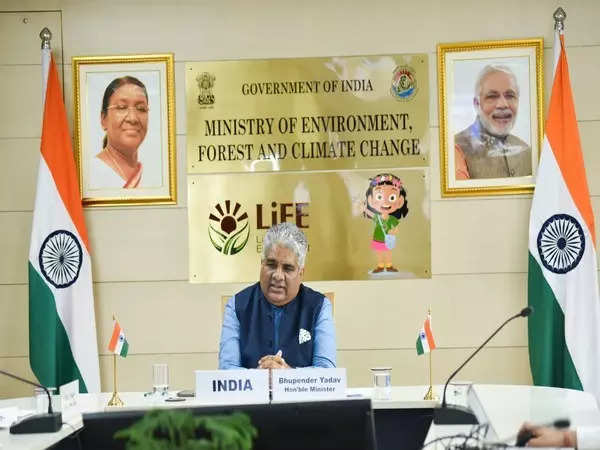As the effects of climate change continue to be felt around the world, the urgency to address this global crisis has never been greater. Recognizing the need for immediate and tangible actions, India, as part of the BRICS nations, is calling upon its fellow members to join forces and take concrete steps towards combating climate change. With a collective responsibility to protect our planet, this call to action highlights the importance of collaboration and shared commitment within the BRICS community.
BRICS, an acronym for Brazil, Russia, India, China, and South Africa, represents a significant portion of the world’s population, landmass, and economic power. Together, these nations possess a tremendous potential to drive change and set an example for the rest of the world. India, in particular, as one of the fastest-growing economies and a country highly vulnerable to climate change impacts, understands the urgent need to prioritize sustainable development and climate resilience.
India’s call for climate action within the BRICS framework emphasizes the need for concrete measures that go beyond mere rhetoric. It underscores the importance of implementing and strengthening existing international commitments, such as the Paris Agreement, and accelerating the transition to a low-carbon economy. The focus is on actionable steps that will have a tangible impact on reducing greenhouse gas emissions, enhancing adaptation efforts, and promoting sustainable practices across various sectors

One of the key areas where BRICS nations can collaborate is renewable energy. India has made remarkable progress in this field, becoming one of the world’s leading nations in terms of installed solar and wind energy capacity. Sharing expertise, knowledge, and best practices in renewable energy development can significantly accelerate the global shift towards clean and sustainable energy sources. By promoting technology transfer, capacity building, and joint research initiatives, BRICS countries can unlock the immense potential for renewable energy
deployment, contributing to both economic growth and climate mitigation.
Another crucial aspect that India highlights is the need for sustainable and resilient infrastructure. As BRICS nations continue to experience rapid urbanization and infrastructure development, it is essential to ensure that these projects are designed and implemented with climate considerations in mind. This includes integrating climate resilience measures, adopting green building practices, and promoting sustainable transport systems. Collaborative efforts in sharing experiences and expertise can lead to the development of infrastructure that is both environmentally friendly and socially inclusive.
In addition, India emphasizes the importance of financing mechanisms for climate action. Mobilizing adequate and predictable financial resources is crucial to support the implementation of climate projects, particularly in developing countries. BRICS nations can work together to explore innovative financing models, such as green bonds, climate funds, and public-private partnerships, to bridge the investment gap for climate-friendly initiatives. By leveraging their collective economic strength, the BRICS countries can play a pivotal role in mobilizing global climate finance and supporting climate actions on a larger scale.
Furthermore, India calls for enhanced cooperation in climate research and development of climate-resilient technologies. By fostering joint research initiatives and sharing scientific knowledge, BRICS nations can collectively contribute to finding innovative solutions for climate change mitigation and adaptation. This collaboration can drive technological advancements, promote sustainable agricultural practices, and facilitate the exchange of climate-related data and information, thereby strengthening climate resilience across the BRICS community.

India’s call upon BRICS nations for urgent, concrete climate actions reflects the pressing need to address the challenges posed by climate change. By leveraging the collective strength and capabilities of the BRICS community, these nations can lead the way in fostering sustainable development and combating climate change on a global scale. Through collaboration, knowledge sharing, and the implementation of tangible measures, the BRICS nations can demonstrate their commitment to environmental stewardship and contribute to a greener, more sustainable future for all.

